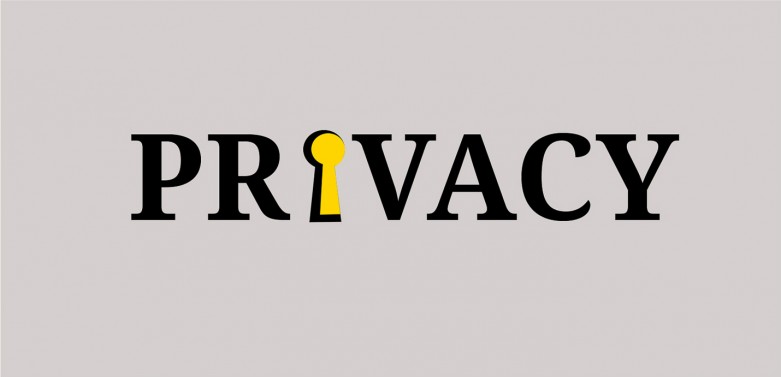
GOP Lawmakers' Many Privacy Hypocrisies
Internet users took a hard loss this week in the fight for broadband privacy and internet freedom — but if you listen to the Republican lawmakers who trashed our privacy rights, you’d think they’d done the opposite.
“Consumers deserve to have the autonomy to control their information and their internet experience,” said Rep. Bill Johnson on Tuesday. A strange statement from a man who subsequently voted to eliminate rules giving people a choice about how ISPs use their personal data.
As Stephen Colbert noted just last night, no voters back home asked their members of Congress to do this. So why did it happen?
There’s a lot of hypocrisy to unpack in privacy opponents’ persistent doublespeak. Let’s break it down.
Last October, the Obama-era FCC passed rules to prevent your ISP from selling sensitive data (like your browsing history) without your express permission. Sen. Jeff Flake sponsored legislation (using a sneaky process called the Congressional Review Act) to destroy the FCC’s rules and strip internet users of these critical broadband privacy protections. Senate Republicans passed the bill, much to the delight of their cable and telecom industry backers, without a single Democratic senator’s vote.
In the House, Democrats again held firm without a single defection, and 15 Republicans listened to their constituents back home and voted the right way. But it wasn’t enough to save broadband privacy.
The majority of congressional Republicans have tried to defend their terrible decision by insisting that a resolution that takes away privacy protections won’t actually take away privacy protections.
“Despite false claims to the contrary, using the CRA will not leave consumers unprotected,” Flake told the Senate last week. “That’s because the FCC is already obligated to police the privacy practices of broadband providers under Section 222 of the Communications Act.”
That’s a nice idea, but it’s not what the Flake’s industry-lobbyist friends told the FCC earlier this year. Cable and telecom lobby group NCTA argued in comments filed in January that “Section 222 was designed to apply only to voice telephony services,” and that any use of the law to protect broadband privacy would qualify as “unlawful exercises of authority.”
Were they lying then, or are they lying now?
And that’s just one of many GOP lies. Unless Republican leaders plan to keep broadband classified as a Title II service, their promise of Section 222 protection is utterly bankrupt. Section 222 is part of Title II, and it applies to broadband providers only if broadband internet access remains properly classified as a Title II service. But industry lobbyists and Republicans in both the FCC and Congress have declared war on Title II, and promised to scrap it along with the strong Net Neutrality protections it supports.
House Republicans insisted during Tuesday’s floor debate that if they succeed in destroying Title II, and thus eliminate the FCC’s ability to protect your online privacy entirely, the Federal Trade Commission will protect your privacy instead. Another pleasant idea betrayed by the GOP’s actions: Republicans in Congress have been pushing legislation that Democratic Rep. Frank Pallone described as a “systematic attempt to dismantle the FTC in order to prevent it from carrying out its mission of protecting consumers.”
In essence, the GOP leaders and members voting the wrong way this week have accomplished an exquisitely dishonest trifecta. They gutted the FCC’s privacy rules based on a Title II statute while claiming that the Title II statute still protects you. Then they promised to gut the same Title II statute while claiming that the FTC still protects you. And it turns out they want to gut the FTC too — the very same agency they’re holding up as a champion of privacy protections.
Last but not least, these lawmakers say the FTC’s approach to online privacy is superior because the agency analyzes each potential violation on a case-by-case basis while the FCC’s privacy protections are rooted in broad bright-line rules.
That’s also what they used to say about Net Neutrality — let’s do it case by case — until the FCC adopted stronger open internet protections coupled with stronger enforcement authority. Now the same Republican lawmakers and the cable lobbyists who love them insist that bright-line Net Neutrality rules are the only way to resolve industry “uncertainty.”
You have to wonder how they can make all of these contradictory claims with a straight face and a clear conscience. The truth is that some policymakers care only about protecting the bottom lines of a few giant companies like Comcast and AT&T.
Like Lucy pulling away the football, the GOP in D.C. keeps yanking away privacy protections and then promising that next time will be different. But whenever we do something to protect people on the internet, they invent a new procedural argument to undermine it. “You can use Section 222.” Yank. “How about the FTC?” Yank. “Just give case-by-case regulation a try.” Yank. Like Charlie Brown, we should stop falling for it.
Republicans’ flip-flopping gives away the lie. Their complaints about broadband privacy aren’t principled procedural objections, but thinly veiled attempts at moving the goalposts to ensure consumers always receive the weakest possible protections.
With the aid of their industry donors, the GOP has tried to frame this fight as a debate about complex legal authority and bureaucratic procedures. The reality is much simpler.
They’re opposed to any regulations that put the interests of real people before the profit margins of monopoly ISPs, and they will take up whatever nonsensical procedural complaints are handy to chip away at strong consumer protections.
Original photo by Flickr user g4114is